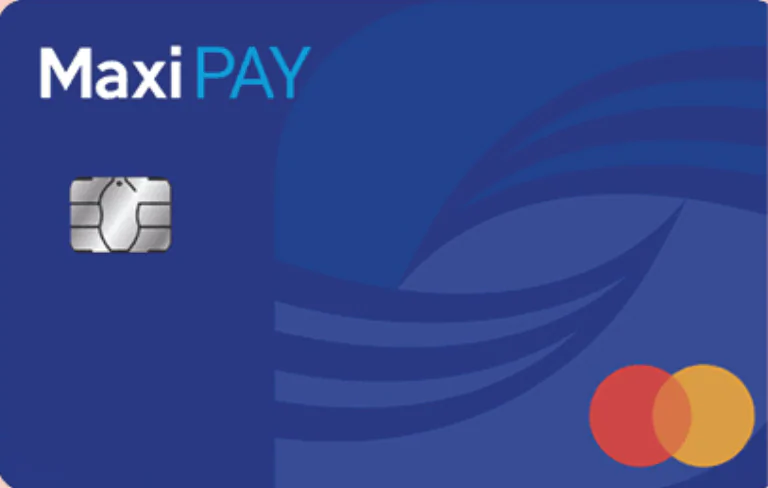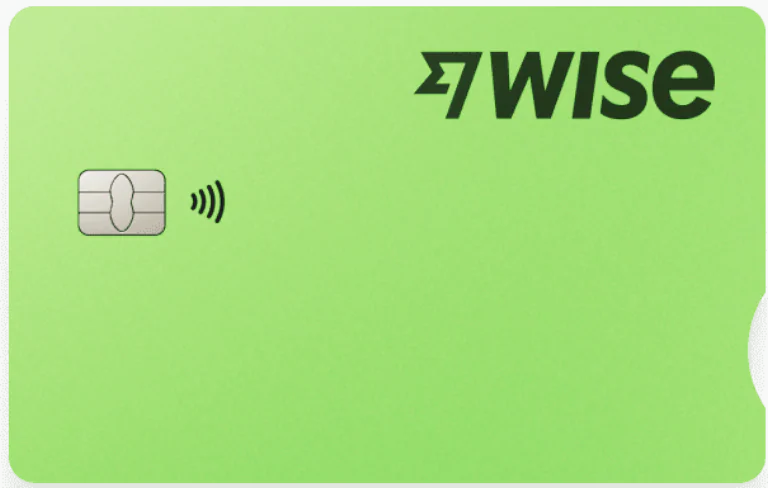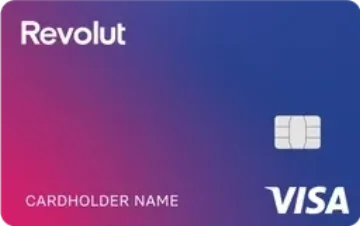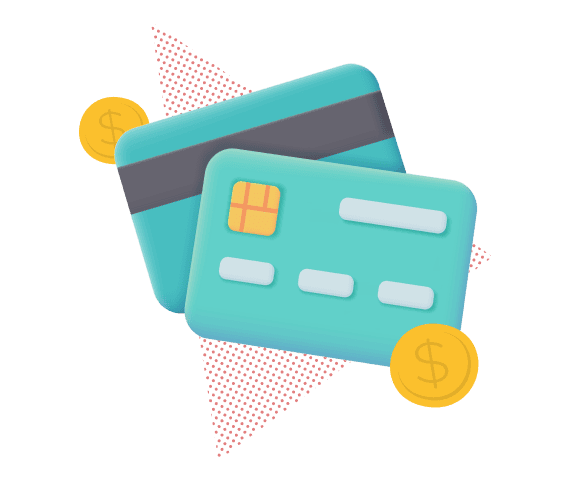5 Best Prepaid Debit Cards for Singaporeans in 2025
Updated: 3 Oct 2025
Written bySingSaver Team
Team
The information on this page is for educational and informational purposes only and should not be considered financial or investment advice. While we review and compare financial products to help you find the best options, we do not provide personalised recommendations or investment advisory services. Always do your own research or consult a licensed financial professional before making any financial decisions.
Prepaid debit cards are your financial sidekick, letting you load up and spend within your limits. They're perfect if you want to dodge credit card debt or just need a separate spending account for those little extras. Think of them as your flexible friend, ready to help you manage your money, your way.
Best prepaid debit cards in Singapore
Navigating the world of prepaid cards can feel like a maze, but don't worry, we've done the legwork for you. Whether you're a globetrotter, a savvy shopper, or just looking for a simple way to manage your spending, our curated list of the best prepaid debit cards in Singapore will point you in the right direction.
Wise Card: Best for fuss-free international transactions
- Spend in 40+ currencies and 160 countries
- Two free ATM withdrawals up to S$350 per month, incurring 1.75% + S$1.50 fee per withdrawal afterwards
- No foreign transaction fees
- No account opening or maintenance fees
- Available as physical or virtual multi-currency card
- Virtual card number differs from physical card for added layer of security
- Get up to 3x virtual cards at a time for different expense types
- Start spending straight away with Google or Apple Pay
- Get real-time spend notifications & 24/7 anti-fraud measures
- Freeze and unfreeze card via app and instantly replace suspected compromised digital cards for peace of mind
- 1.75% + S$1.50 fee per withdrawal beyond the 2 free withdrawals per month.
The Wise Card is your passport to hassle-free international spending. Known for its transparent, real exchange rates and minimal fees, it's a must-have for frequent travellers and global business enthusiasts looking for a prepaid debit card.
Pros
Real exchange rates:
Real exchange rates: Get the mid-market rate, without hidden markups.
Low, transparent fees:
Know exactly what you're paying with clear fee structures.
Multi-currency account:
Hold and manage over 50 currencies in one place.
Fast international transfers:
Send money globally with speed and ease.
Cons
ATM withdrawal limits may apply, and some fees may occur after free allowance is used.
Cash reloads are not as readily available as bank transfers.
Fees
-
Monthly fees: S$0
-
Physical card: S$8.50
-
Account funding transactions: 2%
-
Purchasing fees: S$0 for same-currency spending for currencies owned
-
Currency conversion fees: From 0.26%, varies by currency
-
Cash withdrawal fees:
-
S$0 for first 2 withdrawals, capped at a total of S$350 per month
-
1.75% + S$1.50 per withdrawal after
Reload methods
-
Bank transfer (local and international)
-
Debit card transfer
-
Direct debit
Saver-savvy tip
If you're aiming to build credit, note that prepaid debit cards won't help with that. Consider exploring credit cards instead, as they're better designed to help you establish a credit history.
YouTrip Card: Best for multi-currency management

YouTrip Multi-Currency Card
- Zero foreign transaction fees: Spend in over 150 currencies without any extra charges.
- Multi-currency wallet: Hold up to 10 currencies in your wallet at any time, locking in competitive exchange rates.
- SmartExchange feature: Get real-time exchange rate updates and lock in favourable rates.
- User-friendly app: Manage your spending, track transactions, and exchange currencies on the go.
- Widely accepted: Functioning as a Mastercard, this card is accepted worldwide.
- ATM withdrawal fees apply after a limited free allowance.
- Reloading from certain credit cards might incur fees.
For Singaporeans who love to travel or shop globally, the YouTrip Card is a game-changer. It simplifies multi-currency spending, allowing you to hold and spend in multiple currencies with ease, all while dodging those pesky foreign transaction fees.
Pros
Zero foreign transaction fees:
Spend in over 150 currencies without any extra charges.
Multi-currency wallet:
Hold up to 10 currencies in your wallet at any time, locking in competitive exchange rates.
SmartExchange feature:
Get real-time exchange rate updates and lock in favourable rates.
User-friendly app:
Manage your spending, track transactions, and exchange currencies on the go.
Widely accepted:
Widely accepted: Functioning as a Mastercard, this card is accepted worldwide.
Cons
ATM withdrawal fees apply after a limited free allowance.
Reloading from certain credit cards might incur fees.
Fees
-
Overseas transaction fees: Free
-
Currency exchange fees: Free
-
Card issuance & setup fee: Free
-
Annual fee: Free
-
Top-ups with PayNow: Free
-
Top-ups with Mastercard credit or debit cards: Free
-
Top-ups with Visa debit cards: Free
-
Top-ups with Visa credit cards: 1.5% service fee
-
Overseas transfers: Varies
-
Card replacement & delivery fee: S$10.00
-
Refund processing fee: S$10.00
-
Cash withdrawal fees:
-
S$0 for amounts adding up to S$400 per month
-
2% thereafter
Reload methods
-
PayNow
-
Mastercard credit or debit cards
-
Visa debit cards or credit cards
Revolut Card: Best for comprehensive financial management
- No income required
- No monthly spend required
- No foreign txn fee
Revolut offers a powerful suite of financial tools, making it a top choice for Singaporeans seeking a comprehensive solution. From managing everyday spending to handling international transactions and investments, Revolut puts you in control.
Pros
Multi-currency account:
Hold and exchange a wide range of currencies.
Budgeting tools:
Track spending, set budgets, and gain insights into your finances.
Investment options:
Access to cryptocurrency and stock trading (depending on your plan).
Global spending:
Spend abroad with competitive exchange rates.
Security features:
Advanced security controls to protect your account.
Cons
Some features are locked behind paid plans.
Fees can apply for exceeding certain limits or for out-of-network ATM withdrawals.
Fees
-
Subscription: Free (standard plan).
-
Top-up fees:
-
Mastercard debit (Singapore): 0.51%
-
Mastercard credit (Singapore): 0.62%
-
Visa debit (Singapore): 0.30%
-
Visa credit (Singapore): 1.97%
-
International cards: 2.08%
-
Commercial cards: 1.12%
-
Singapore bank accounts: Free
-
First top-up from each card type: Free
-
International ATMs:
-
Up to S$350/5 withdrawals: Free
-
Beyond limits: 2% or S$1.49 (higher)
-
Singapore ATMs: Not permitted
-
Sending money:
-
Revolut users: Free
-
SGD bank transfers:
-
First 5: Free
-
Beyond limits: S$2.99
-
Other Transfers: Variable.
-
Card transfers:
-
Singapore (within limit): Free
-
Singapore (beyond limit): S$2.99 (standard), S$0.99 (premium), free (metal)
-
International: 0.8% + S$1.75
-
Exchange:
-
Within limits: Exchange fees vary (if one applies, depends on currency)
-
Beyond limits: Fair usage fee of 1% (standard) and 0.5% (premium)
-
Weekend fees: 1%
-
Crypto fees:
-
Standard: 1.49% (or S$1.49 minimum)
-
Premium/Metal: 1.49%
Reload methods
-
PayNow
-
Mastercard credit or debit cards
-
Visa debit cards or credit cards
NETS Prepaid Card: Best for local everyday spend

NETS Prepaid Card
- Widely accepted: Accepted at a vast network of merchants across Singapore, including hawker centres, supermarkets, and retail stores.
- Easy reloading: Convenient top-up options at NETS terminals and various retail outlets.
- Contactless payments: Supports quick and hassle-free contactless transactions.
- No bank account required: Accessible to anyone, regardless of banking history.
- Limited to local transactions; not ideal for international use.
- Reload fees may apply at certain locations.
- Mobile app is extremely basic, not the best for detailed transaction tracking.
For Singaporeans seeking a straightforward and convenient way to manage daily expenses, the NETS Prepaid Card is a reliable choice. It's designed for seamless local transactions, making it perfect for everyday use across the island.
Pros
Widely accepted:
Accepted at a vast network of merchants across Singapore, including hawker centres, supermarkets, and retail stores.
Easy reloading:
Contactless payments:
Supports quick and hassle-free contactless transactions.
No bank account required:
Accessible to anyone, regardless of banking history.
Cons
Limited to local transactions; not ideal for international use.
Reload fees may apply at certain locations.
Mobile app is extremely basic, not the best for detailed transaction tracking.
Fees
-
Top-up fee:
-
App, online, and applicable kiosks: Free
-
7-Eleven convenience stores: S$0.50
-
Statement print fee: S$0.20
Reload methods
-
NETS terminals
-
Selected retail outlets (e.g., 7-Eleven, Cheers)
-
AXS Stations
Maxi-Cash MaxiPAY Card: Best for convenient e-wallet transactions and remittances

Maxi-Cash MaxiPAY Card
- Easy access: No bank account required, making it accessible to a wide range of users, including those underserved by traditional banking.
- Real-time remittances: Facilitates fast and affordable international and local money transfers.
- Cashless payments: Enables in-store and online purchases at any merchant accepting Mastercard.
- Fast and easy top-ups: Convenient top-up options at Maxi-Cash stores and via FAST transfer.
- Secure payments: Provides a safe and secure payment platform.
- Reliance on the MaxiPAY app for full functionality.
The Maxi-Cash MaxiPAY Card, powered by MatchMove, offers a personal e-wallet with both virtual and physical prepaid Mastercard options. It's designed for convenient local and international transactions, including remittances, without the need for a traditional bank account.
Pros
Easy access:
No bank account required, making it accessible to a wide range of users, including those underserved by traditional banking.
Real-time remittances:
Facilitates fast and affordable international and local money transfers.
Cashless payments:
Enables in-store and online purchases at any merchant accepting Mastercard.
Fast and easy top-ups:
Convenient top-up options at Maxi-Cash stores and via FAST transfer.
Secure payments:
Provides a safe and secure payment platform.
Cons
Reliance on the MaxiPAY app for full functionality.
Fees
-
Specific fee structures not detailed publicly.
Reload methods
-
Maxi-Cash stores
-
FAST transfer.
-
7-Eleven outlets
>> Want to build up your savings? Check out the best savings accounts in Singapore.
Traditional bank accounts as low-fee alternatives to prepaid cards
The lines between prepaid cards and traditional bank accounts are becoming increasingly blurred, with many offering similar features and services. This is especially true in Singapore's landscape, where mobile-optimised banking experiences are prevalent.
Similar to many prepaid cards, setting up a basic bank account in Singapore often requires minimal credit checks, and some accounts may not even scrutinise your past banking history. Unlike prepaid cards, however, these accounts come with added advantages, such as advanced savings features, extensive ATM networks, and the option to write cheques if needed.
For instance, major banks like DBS and OCBC offer basic savings or current accounts with debit cards that provide a plethora of benefits. These accounts link directly to your bank account, simplifying financial management and ensuring wider acceptance both locally and internationally.
You gain access to a full suite of banking services, including online banking, mobile apps, and extensive ATM networks, and may even earn interest on your balance.
If you're considering a prepaid card due to past banking challenges, these basic accounts offer a second chance, providing an opportunity to rebuild your financial standing.
See more information about traditional bank accounts
-
Savings accounts: Ideal for everyday transactions and building savings, often with tiered interest rates.
-
Current accounts: Designed for frequent transactions and business use, typically with cheque-writing facilities.
-
Multi-currency accounts: Allows you to hold and transact in multiple foreign currencies, ideal for travellers and those dealing with international transactions.
-
Debit cards: Linked directly to your account, accepted at ATMs and merchants worldwide.
-
Online and mobile banking: Manage your finances, transfer funds, and pay bills conveniently.
-
ATM Networks: Access to extensive networks for cash withdrawals and deposits.
-
Cheque facilities: For current accounts, enabling cheque payments.
-
Interest earnings: Savings accounts often offer interest on your balance, varying by account type and balance.
-
Typically requires a valid Singapore identification document (NRIC or FIN).
-
Some accounts may require a minimum initial deposit and/or a minimum monthly balance.
-
Eligibility criteria can vary between banks and account types.
-
Monthly fees may apply, but many banks waive them if certain conditions are met (e.g., maintaining a minimum balance).
-
Transaction fees may apply for certain services, such as overseas ATM withdrawals or cheque deposits.
-
It is crucial to check the specific fee schedule of your chosen bank and account.
Prepaid-like options from fintechs in Singapore
Singapore's advanced digital wallet ecosystem offers a compelling alternative to traditional prepaid cards, with fintech solutions providing similar functionalities. Digital wallets like DBS PayLah!, OCBC PayAnyone, GrabPay, and Singtel Dash offer convenient and low-cost payment solutions.
PayLah! and PayAnyone integrate seamlessly with DBS and OCBC bank accounts, respectively, enabling easy peer-to-peer transfers, online and in-store payments, and bill payments, often accompanied by promotions and cashback offers.
GrabPay, part of the Grab ecosystem, facilitates payments for rides, food delivery, and in-store purchases, while also being useable wherever Mastercards are accepted. On the other hand, Singtel Dash offers mobile payments, remittance services, and insurance options, catering to both local and international transactions.
These digital wallets provide unparalleled convenience, allowing payments to be made directly from your smartphone, and typically involve low or no transaction fees. Many digital wallets also offer rewards, discounts, and loyalty programmes, enhancing their appeal. Their seamless integration with other services and apps further simplifies daily financial activities.
>> More: A complete guide to mobile wallets in Singapore (2025)
Best prepaid debit cards in Singapore: Summary of use cases and fees
|
Card name |
Key use case |
Key costs |
|
Wise Card |
Best for international transactions |
|
|
YouTrip Card |
Best for multi-currency management |
|
|
Revolut Card |
Best for comprehensive financial management |
|
|
NETS Prepaid Card |
Best for local everyday spend |
|
|
Maxi-Cash MaxiPAY Card |
Best for convenient e-wallet transactions and remittances |
|
What are prepaid debit cards?
Prepaid debit cards are essentially a bridge between cash and traditional banking. In Singapore’s fast-paced environment, they offer instant access to cashless transactions without the need for a full bank account. Think of them as a digital wallet you control – load funds as needed, spend within your limits, and enjoy the convenience of card payments without the risk of overspending. They're ideal for budgeting, online shopping, or anyone seeking financial flexibility without the commitments of a traditional bank account. In a city where efficiency matters, prepaid cards offer a streamlined way to manage your spending.
>> Learn more about multi-currency cards in Singapore
Looking for the best debit cards of 2025?
We gathered all the information in one place, so you can find what suits you best – fast, and easy.
Prepaid cards vs regular debit cards
Prepaid cards and debit cards, while both enabling cashless transactions, cater to distinct financial needs.
Prepaid cards are fundamentally about controlled spending and accessibility. They excel when you need a separate spending buffer, are unbanked, or seek to manage specific budgets, such as travel funds or allowances for dependents. Their independence from traditional bank accounts makes them ideal for individuals who prioritise financial autonomy and want to minimise exposure to bank fees or overdraft risks.
Regular debit cards, conversely, are best suited for those integrated within the traditional banking system, requiring seamless access to a broader suite of financial services. They provide direct access to your account balance, facilitating direct deposits, online banking, and comprehensive transaction capabilities. If you prioritise financial integration and require a full range of banking services, a regular debit card is the more appropriate choice.
Essentially, prepaid cards offer a controlled, accessible spending solution, while regular debit cards offer deeper integration with the traditional banking system.
Frequently asked questions about prepaid debit cards
-
Fintech companies: Companies like Wise, YouTrip, and Revolut offer prepaid cards that are often focused on international transactions and multi-currency management. These are usually obtained through online applications and mobile apps.
-
Banks: Some traditional banks in Singapore offer prepaid cards, often as part of their broader suite of financial products.
-
Retail outlets: Certain retail outlets and convenience stores, such as Maxi-Cash, may offer prepaid cards, often for local spending purposes.
-
Bank transfers: You can transfer funds from your bank account to your prepaid card account via online banking or mobile apps.
-
Debit card transfers: Some prepaid card issuers allow you to add funds using your debit card.
-
Cash reloads: You can add cash to your prepaid card at designated locations, such as retail outlets or reload kiosks.
-
PayNow: Many prepaid cards now allow top-ups via PayNow.
A prepaid debit card is a payment card that you load with your own funds before you can use it. Unlike a traditional debit card that's linked directly to your bank account, a prepaid card operates on a "pay-as-you-go" basis. You add money to the card, and then you can spend up to that amount wherever the card is accepted, whether it's online, in stores, or at ATMs. This makes it an excellent budgeting tool, as it helps you control your spending and avoid overdraft fees. It can also serve as an alternative to a traditional bank account for individuals who may not have access to one or who prefer not to use one.
The term "prepaid credit card" is a misnomer, as it doesn't exist. There's a fundamental difference between prepaid cards and credit cards. A prepaid card is loaded with your own money, and you spend that money. A credit card, on the other hand, provides you with a line of credit, which you borrow and then pay back later, often with interest. A secured credit card is a type of credit card that requires you to deposit a security deposit, which acts as collateral for your credit line. While it might seem similar to a prepaid card because you're putting money down, it's still a credit line, not your own pre-loaded funds.
In Singapore, you can obtain prepaid cards from a variety of sources:
The methods for adding money to a prepaid card vary depending on the card issuer, but common methods include:
The "best" prepaid debit card in Singapore depends entirely on your individual needs and spending habits. Consider these factors: If you travel frequently or make purchases in foreign currencies, cards like Wise or YouTrip, with competitive exchange rates and low fees, may be ideal. If you need to hold and manage multiple currencies, YouTrip or Revolut offer excellent multi-currency features. For everyday local spending, the NETS Prepaid Card provides widespread acceptance and convenience. If you want a card that integrates budgeting, investments, and other financial tools, Revolut is a strong contender. If you want a card that allows remittances, and access to e-wallet features, the Maxi-Cash MaxiPAY card could be useful.
While it's rare to find a prepaid debit card with absolutely no fees, some cards offer minimal or waived fees based on your usage. For example, some cards may waive monthly fees if you maintain a certain balance or meet other requirements. Many cards offer free currency exchange up to a certain limit. Some cards offer a limited number of free ATM withdrawals per month. It is very common for top-ups via bank transfer or PayNow to be free. It's essential to carefully review the fee schedule of any prepaid card you're considering to understand the potential costs.
Stay ahead in everything finance
Subscribe to our newsletter and receive insightful articles, exclusive tips, and the latest financial news, delivered straight to your inbox.
About the author
SingSaver Team
At SingSaver, we make personal finance accessible with easy to understand personal finance reads, tools and money hacks that simplify all of life’s financial decisions for you.

















